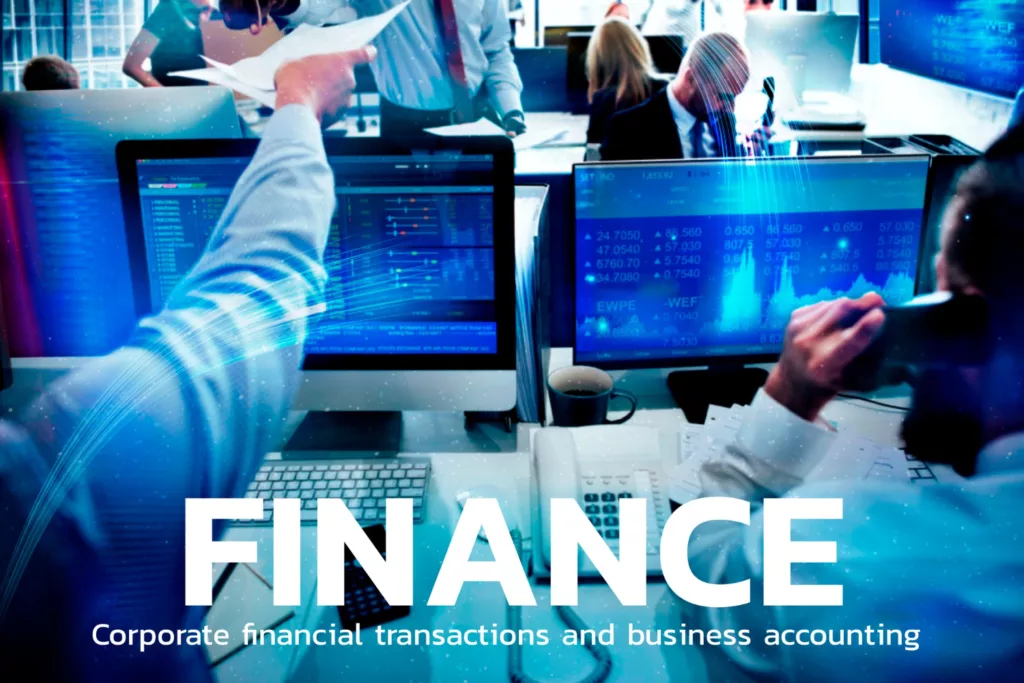In recent years, the financial services industry has witnessed a paradigm shift with the integration of Artificial Intelligence (AI) into various processes. From fintech startups to established banking institutions, AI is transforming the way finance and banking operate, offering improved efficiency, enhanced customer experiences, and innovative solutions. In this article, we delve into the key advancements brought about by AI in the realms of fintech, trade finance, and overall banking operations.
Introduction
AI, a branch of computer science, enables machines to perform tasks that would typically require human intelligence. In the finance and banking sectors, AI algorithms and machine learning models are being employed to analyze vast amounts of data, identify patterns, and make data-driven decisions. This has opened up new possibilities for optimizing financial processes and delivering personalized services to customers.
The Rise of Fintech with AI

Fintech, short for financial technology, refers to the use of technology to improve and automate financial services. AI has played a crucial role in propelling the growth of the fintech industry, leading to the emergence of innovative products and services.
Robo-Advisors for Personalized Wealth Management
Robo-advisors, powered by AI, have revolutionized wealth management. These digital platforms leverage algorithms to assess an individual’s risk tolerance, financial goals, and investment preferences. Based on this analysis, robo-advisors create personalized investment portfolios and automatically rebalance them as market conditions change. The accessibility and cost-effectiveness of robo-advisors have democratized wealth management, making it available to a broader range of investors.
AI-Driven Credit Scoring and Underwriting
Traditionally, banks relied on historical credit data and manual analysis to assess loan applications. AI-driven credit scoring models have significantly expedited this process by analyzing a more comprehensive set of data, including non-traditional sources such as social media and transaction history. This allows lenders to make faster and more accurate credit decisions, expanding access to credit for previously underserved populations.
Fraud Detection and Prevention
AI-based fraud detection systems are instrumental in safeguarding financial institutions and customers from fraudulent activities. These systems continuously analyze transaction data and customer behavior patterns to identify suspicious activities in real-time. By promptly detecting and preventing fraud, banks can protect their customers’ assets and maintain trust in their services.
Revolutionizing Trade Finance
Trade finance, which involves providing financing and risk mitigation services for international trade transactions, has traditionally been a complex and paperwork-intensive process. AI is now streamlining trade finance operations, making them more efficient and transparent.
Smart Contract and Blockchain Integration
AI-powered smart contracts, integrated with blockchain technology, are revolutionizing trade finance by automating contract execution, payment processing, and compliance verification. These self-executing contracts eliminate the need for intermediaries, reduce processing times, and ensure tamper-proof records of trade transactions.
Trade Risk Assessment and Mitigation
AI algorithms are being used to assess trade risks by analyzing a plethora of data, including geopolitical factors, market trends, and financial stability indicators. This sophisticated risk analysis helps banks and financial institutions make informed decisions about offering trade finance services to importers and exporters.
Supply Chain Optimization
AI’s predictive capabilities are being leveraged to optimize supply chain operations. By analyzing data on suppliers, inventory levels, transportation, and demand patterns, AI can identify potential bottlenecks and inefficiencies, enabling smoother and more cost-effective trade processes.
Enhancing Overall Banking Operations

Beyond fintech and trade finance, AI is transforming various other aspects of banking operations, leading to enhanced efficiency and customer satisfaction.
Chatbots and Virtual Assistants
AI-powered chatbots and virtual assistants have become prevalent in customer service, providing instant responses to customer queries and guiding them through banking processes. These virtual assistants offer a seamless and personalized experience, reducing the burden on human customer support teams.
Risk Management and Compliance
AI’s analytical capabilities are being harnessed to manage risks and ensure compliance with regulatory requirements. Advanced AI models can identify potential compliance issues, flag suspicious transactions, and ensure adherence to anti-money laundering (AML) and Know Your Customer (KYC) regulations.
Predictive Analytics for Customer Insights
AI-driven predictive analytics help banks gain deeper insights into customer behavior, preferences, and needs. This information enables banks to offer personalized product recommendations, targeted marketing campaigns, and tailor-made financial solutions.
The Road Ahead: Challenges and Opportunities
While AI has brought significant advancements to finance and banking, certain challenges remain.
Data Privacy and Security
The increasing reliance on AI necessitates robust data privacy and security measures to protect sensitive financial information from unauthorized access and cyber threats.
Regulatory Frameworks
The evolving nature of AI technologies requires corresponding regulatory frameworks to ensure responsible and ethical AI implementation in the financial sector.
Human-AI Collaboration
Finding the right balance between AI automation and human expertise is crucial to providing customers with both efficiency and the human touch that some interactions may require.
Conclusion
AI is driving a transformative wave in finance and banking, empowering fintech innovation, revolutionizing trade finance, and optimizing banking operations. As AI continues to evolve, financial institutions must embrace the opportunities it presents while navigating the challenges responsibly. The future of finance and banking lies in harnessing the full potential of AI to deliver innovative, efficient, and customer-centric services.
Frequently Asked Questions
Answer: The future of finance and banking lies in harnessing the full potential of AI to deliver innovative, efficient, and customer-centric services while ensuring ethical and responsible AI implementation.
Answer: Challenges include data privacy and security concerns, regulatory frameworks, and finding the right balance between AI automation and human expertise.
Answer: AI-powered chatbots and virtual assistants offer instant responses and personalized guidance to customers, enhancing customer service experiences in banking.
Answer: AI streamlines trade finance through smart contract automation, risk assessment, and supply chain optimization, making international trade transactions more efficient and transparent.
Answer: AI-powered robo-advisors analyze an individual’s financial data to create personalized investment portfolios, enabling efficient and cost-effective wealth management.
